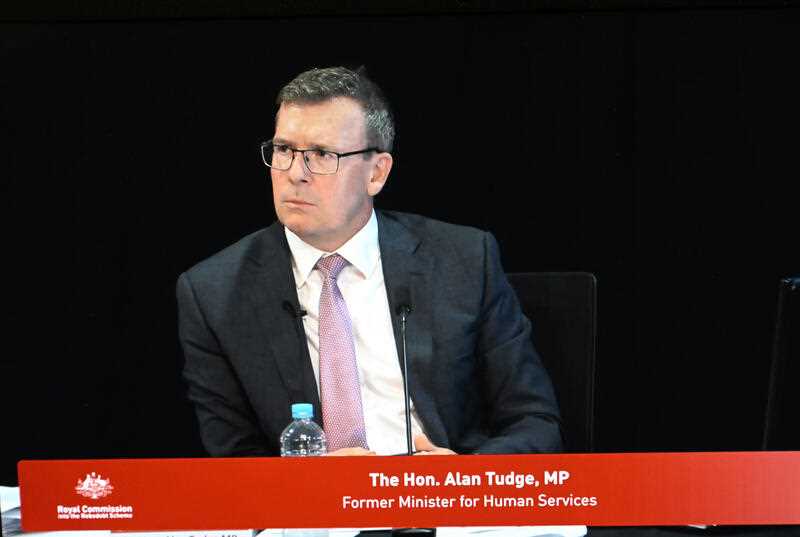Concerns about the legality of the income averaging at the heart of the robodebt scheme were dampened by the understanding it had been “used for a long time by governments of both colours”, the royal commission has been told.
Andrew Asten was former human services minister Alan Tudge’s chief of staff when problems with the scheme came to light in early 2017.
In evidence to a hearing on Monday, Mr Asten said after questions about the legality of debts were reported in the media, the income averaging process was “raised at length” with public servants in January 2017.
“The department had clear and full answers to those questions, that income averaging had been used for a long time by governments of both colours, and that that use of income averaging was not a change as part of the (online compliance intervention),” he said.
Asked if public servants said it was lawful, Mr Asten said the “clear implication was that it was lawful as a longstanding practice”.
He told commissioners the role of Mr Tudge’s office was to implement the scheme.
“There was no sense of any room or authorising environment where it was open to the minister to pause, let alone cancel the program,” he said in response to questions about concerns raised by The Australian Council of Social Service.
Mr Tudge has already fronted the inquiry and said his understanding of income averaging was that it had been used for decades and that it did not occur to him it might have been unlawful.
The robodebt scheme continued to operate for several years despite concerns it was unlawful and families have spoken publicly about suicides allegedly connected to the pursuit of debts.
Taken to a specific instance, Mr Asten said “any allegation that there was a suicide in relation to a government program was of great concern”.
He recalled the minister and the secretary of the department discussing the matter and anticipated it would have been “fully explored” in subsequent briefings.
Earlier on Monday, former Department of Human Services deputy general counsel of program advice and privacy Mark Gladman told the inquiry he raised concerns about the scheme in 2017.
Mr Gladman advised former general counsel of commercial law Lisa Carmody that the argument in support of the proposal was “weak”.
“I believe I met with Ms Carmody to discuss the progress of the Averaging Advice late morning on 10 January 2017 (10 January 2017 Meeting),” Mr Gladman wrote in an email shown to commissioners.
“In that discussion, I told Ms Carmody that I thought the arguments that had been identified in support of income averaging were ‘weak’.”
Mr Gladman urged the department to seek urgent legal advice from the Australian Government Solicitor.
“The more I looked at our arguments, the more I started to question whether that was really an accurate description of what the department was trying to achieve,” he told the inquiry.
He questioned how the calculations could possibly apply to students who worked sporadically at best.
Ms Carmody said she did not recall Mr Gladman raising legal concerns.
“I don’t have a specific recollection of Mr Gladman saying the arguments were weak,” she told the inquiry.
“But from my review of the correspondence that week and my review of the draft advice, it is apparent to me that we weren’t expressing it in terms that it was strong.”
Commissioner Catherine Holmes criticised the legal argument used by the department to justify the averaging scheme, saying there was no justification under the Social Security Act.
“To put it bluntly, this is about as lame an advice as you could get, isn’t it? … as a legal advice, it’s really unconvincing,” the commissioner said.
Lifeline 13 11 14
beyondblue 1300 22 4636



